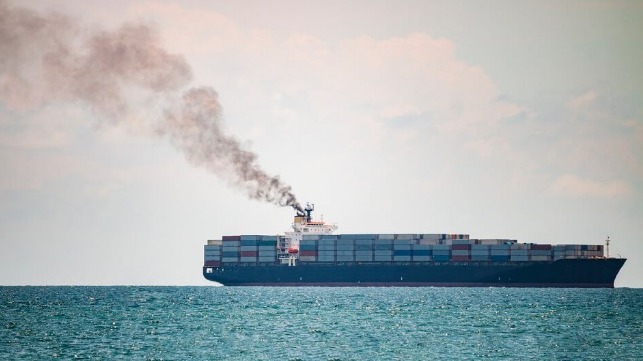European Ethanol Producers File Challenge to FuelEU Maritime Regulation

An industry group representing European ethanol producers launched a legal challenge they announced yesterday seeking to at least partially annul the FuelEU Maritime Regulation saying that it improperly addresses sustainable biofuels such as renewable ethanol. In a filing made last month to the General Court of the European Union they argue the maritime regulations due to go into effect in 2025 failed to properly reflect the EU’s Renewable Energy Directive and if permitted to proceed would jeopardize the EU efforts in biofuels.
The efforts to extend the FuelEU regulations to the maritime and aviation industries were a long and hard-fought battle with a political agreement finally reached in March 2023. The shipping industry won some key concessions but starting in 2025 the regulations move to aggressively reduce carbon emissions through a series of step down between next year and 2025. It includes provisions for e-fuels but there were also concerns about creating competition with the food supply.
The filing argues that the FuelEU Maritime Regulation fails to properly recognize the proven benefits of sustainable crop-based biofuels and has therefore violated several key EU legislative procedures. They are saying that the regulation excludes Renewable Energy Directive (RED)-compliant crop-based biofuels from the decarbonization objectives of the maritime sector.
“The EU’s patchwork approach to crop-based renewable ethanol – confirming its sustainability and importance in the Renewable Energy Directive but sidelining it in FuelEU Maritime and RefuelEU Aviation – is more than just discriminatory,” said David Carpintero, Director General of ePURE, the European renewable ethanol association. “It also jeopardizes the EU’s ability to meet ambitious decarbonization targets,” he argues.
The legal action is based on several arguments, including among others that the European Parliament and the Council “committed a manifest error of assessment by failing to rely on scientific and technical data in preparing their policy on the environment.” The argument contends that the policymakers violated the principle of proportionality by considering that RED-compliant crop-based biofuels have the same emission factors as the least favorable fossil fuel in maritime transport. The regulation as written they argue violated the principle of equal treatment because the methodology used to calculate GHG intensity of the energy used on board ships is not consistent with the RED's biofuel GHG emission calculation.

that matters most
Get the latest maritime news delivered to your inbox daily.
The lobbyists are asking the court to annul the portions of the regulation that they contend fail to properly reflect the Renewable Energy Directive.
If the FuelEU Maritime regulation is permitted to proceed as written, they are arguing the EU would be discouraging domestic renewable fuel production. One producer, agribusiness Pannonia, and its subsidiary ClonBio Group are calling the policymaking “irresponsible” and “unstable,” saying they are pursuing investments in the U.S. instead. They argue that the EU will be left behind when the global maritime and aviation markets harmonize around solutions such as sustainable crop-based biofuels because of the failure of the FuelEU regulations.
